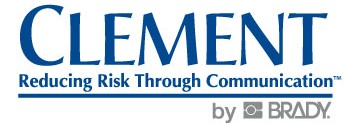Oregon OSHA Seeks Permanent COVID-19 Rule
Seeking to extend protections for workers against the coronavirus disease, the Oregon Occupational Safety and Health Division (Oregon OSHA) is proposing a permanent rule that largely maintains — with some improvements — the risk-reducing measures required by the current temporary emergency rule. It would replace the temporary rule, which expires on May 4.
“The public health emergency triggered by COVID-19 remains a significant concern in Oregon – as we know, we have not yet defeated this disease and we clearly will not have done so by the time the temporary rule expires. As a result, it is critically important that we carry forward measures that we know are effective at combating the spread of this disease and reducing risks in the workplace,” said Michael Wood, administrator for Oregon OSHA. “Failure to do so will undoubtedly leave workers far less protected and leave employers with far less clarity and certainty in terms of what is expected of them.”
As with the temporary rule, which took effect Nov. 16, 2020, the proposed permanent rule maintains such requirements as physical distancing; use of face coverings; regular sanitation; employee notification and training; maximization and maintenance of existing ventilation systems; and formal exposure risk assessment and infection control planning. The proposed permanent rule would allow employers to rely upon the risk assessments, infection control plans, and infection control training already completed.
However, the permanent rule would add measures and strengthen provisions in certain areas. Those proposed changes include:
- Requiring employers to consider alternatives to transporting multiple people in a single vehicle, although such transportation would not be prohibited.
- Slightly modifying the ventilation measures so that employers with more than 10 employees – and that have existing ventilation systems – must certify in writing that they are running their systems in line with current requirements. The proposed rule does not require the purchase or installation of new ventilation systems.
- Requiring employers to provide written notification to employees of their rights to return to work when employees must quarantine.
- Requiring employers to cooperate with public health authorities that ask to arrange for vaccination in the workplace. This proposed requirement is similar to the temporary rule’s provision mandating cooperation with public health officials if COVID-19 testing in the workplace is necessary.
- Requiring health care employers to provide respirators to employees working with known or suspected COVID-19-positive patients unless they demonstrate there is a genuine shortage that they are working to resolve.
- The proposed permanent rule also strengthens the language discouraging the use of face shields, which have been shown to be less effective than masks or facial coverings although such devices would remain an option for source control.”

